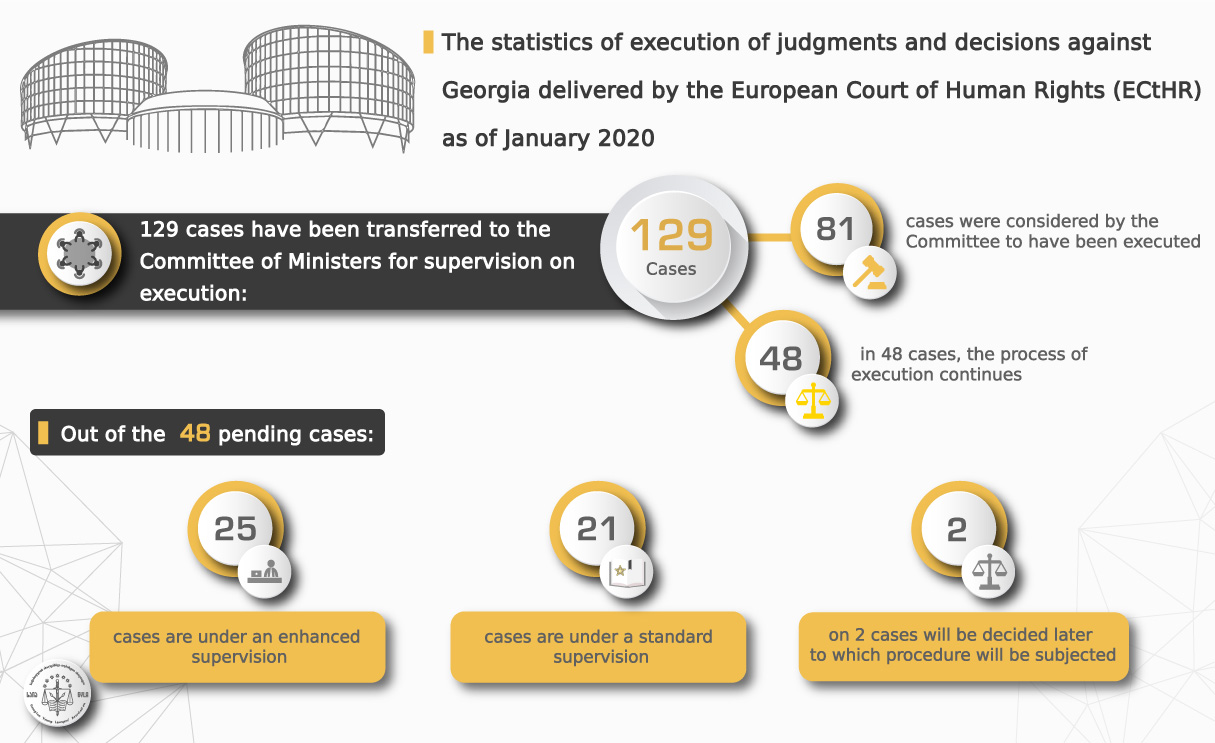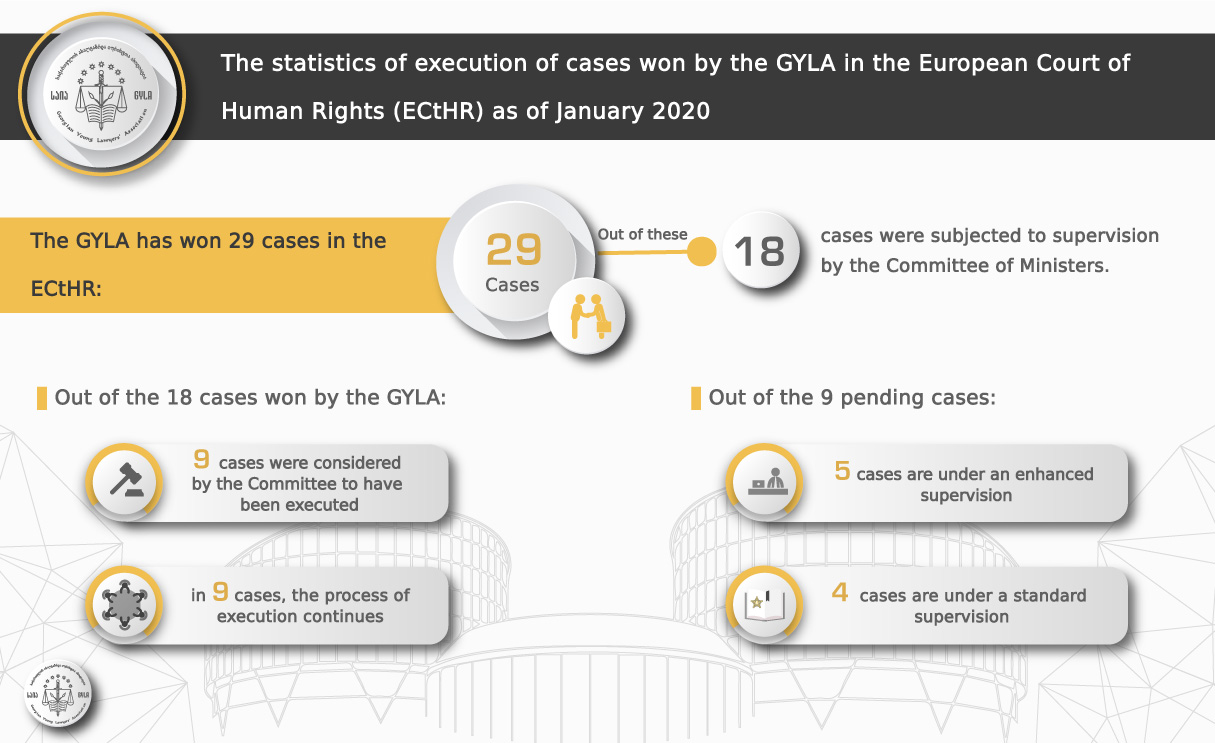According to Article 46 of the European Convention on Human Rights, the High Contracting Parties undertake to abide by the final judgment of the European Court of Human Rights (ECtHR) in any case to which they are parties. The final judgment of the Court is to be transmitted to the Committee of Ministers, which supervises its execution.
Georgia, as a Member State of the Council of Europe, is obliged to abide by judgments delivered against it by the ECtHR and, if the ECtHR finds a violation, not only to pay the applicant the amount afforded to him/her as just satisfaction but also to determine, under the supervision of the Committee of Ministers, the individual and general measures that should be undertaken at the national level in order to execute the judgment effectively. 
Up to now, 129 judgments and decisions delivered by the ECtHR against Georgia have been transmitted to the Committee of Ministers for exercising supervision. During the past 14 years, the Committee of Ministers closed the supervision on 81 of the 129 cases, as it considered the cases to have been executed, while in 48 cases, the Committee of Ministers continues the execution process. Accordingly, Georgia has yet to execute 48 judgments/decisions delivered by the ECtHR.
The Committee of Ministers reviews cases with a standard or enhanced procedure as part of the two-track system it has developed. Cases subject to an enhanced supervision include those with structural and/or complex problems. Out of the 48 pending cases against Georgia transmitted to the Committee, 25 cases are under an enhanced supervision, while 21 cases are under a standard supervision. In 2 of the 48 cases, the ECtHR delivered the judgment recently, and the Committee of Ministers has yet to decide which procedure they will follow to supervise the execution of the cases.
In addition, out of the 48 pending cases:
- 20 cases are the “leading cases”, which means that the cases reveal structural and/or complex problems that require the state to undertake general measures and eliminate the problems; and
- 28 cases are the “repetitive cases”, which means that the structural and/or complex problems revealed in these cases have already been identified in leading cases.
As of today, 18 cases litigated by the GYLA have been subjected to the supervision of the Committee of Ministers. At this stage, the execution process continues in 9 cases. Five of the 9 cases are under an enhanced supervision, while 4 cases are under a standard supervision. And 3 cases belong to the category of leading cases.
Cases litigated by the GYLA that are under an enhanced supervision and/or belong to leading cases include such cases as:
- Tsintsabadze group cases, which concerns violation of the right to life and ill-treatment, including inadequate investigation of incidents of ill-treatment allegedly committed by law enforcement officers. Tsintsabadze group cases brings together 20 “repetitive” cases in total.
- N.Ts. and Others v. Georgia, which concerns inadequate representation of children and failure to take account of their best interests while adopting decisions at the national level.
- Bekauri and Others v. Georgia and Studio Maestro LTD and Others v. Georgia, which concern ill-treatment of participants of a protest rally and journalists on June 15, 2009, and examination of the cases of the demonstrants on the basis of the Administrative Offences Code adopted during the Soviet period.
Timely and effective execution of judgments and decisions of the ECtHR is of essential importance, first of all, for those individuals in relation to whom the ECtHR has found a violation of a concrete right on the part of the state, because, without proper execution, restoration of the violated right and justice cannot be achieved for the individual concerned.
Effective execution of judgments is also decisively important for the protection of human rights in the country, especially when the cases reveal structural and complex problems. The statistics of pending cases supervised by the Committee of Ministers clearly demonstrate that the majority of cases reveal systemic problems existing in various spheres in Georgia. In spite of the foregoing, the majority of leading cases and/or cases under an enhanced supervision have yet to be executed by Georgia and, despite certain steps taken by the state, require the implementation of additional effective measures.
You can see additional information and statistics on the judgments and decisions delivered against Georgia on the website of the European Implementation Network.
